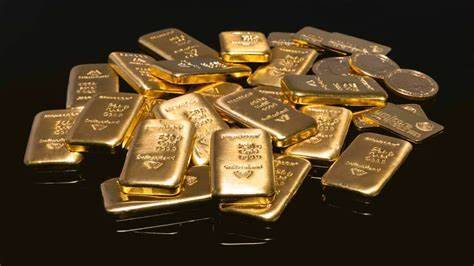According to Lebanese customs figures for 2023, raw gold bars are the second-largest imported commodity, with an import value of approximately $1.9 billion. This means that 11 percent of the dollars used for imports in 2023 went abroad to finance the purchase of these bars. While the bars are used in the gold crafting sector to transform them into pieces ready for display and sale for individual use, statistics indicate that the raw gold is imported and then re-exported. This suggests that not all quantities imported are used in jewelry manufacturing, which involves added value that the economy could gain from this investment; instead, gold is often stored and then exported without any benefit to the local economy.
In the past decade, Lebanon imported gold bars worth $7.4 billion, or about 183 tons. During the same period, Lebanon exported 119 tons of this gold, representing 65 percent of what was imported. The main countries supplying raw gold bars to Lebanon include Switzerland, the UAE, Venezuela, and Turkey. Conversely, the largest importers of raw gold bars from Lebanon were Switzerland, the UAE, and Turkey. This situation suggests that there are unproductive trade operations going back and forth, contrary to the claim that exports and imports aim to present gold at exhibitions held in those countries. The bars have little value for display, especially in such large quantities, indicating that a significant portion of the imported amount is re-exported as is, which seems unbeneficial for an economy suffering from a trade deficit that reflects a current account deficit. For example, the $1.9 billion could have been used to import raw materials for producing goods that could bring more foreign currency into the country.
This issue highlights the need for a capital control law, which has become a law that can only enforce import regulations after most capital has left the financial sector following the crisis. This necessitates oversight of imports to understand where they go and how they are utilized. Practically, the government cannot redistribute the amount consumed in importing and exporting gold bars toward importing raw materials for other industries, as this requires an efficient banking sector that can lend these savings to finance investments in alternative sectors. Given that the banking sector is currently disrupted, particularly regarding its financial role in the economy, one cannot discuss capital control and redirecting funds toward more beneficial investments for the economy.




